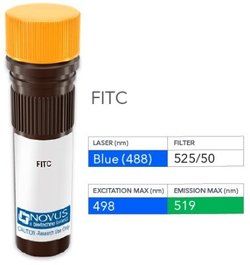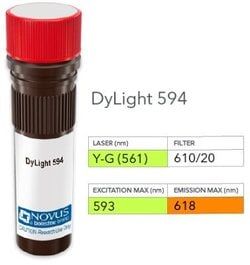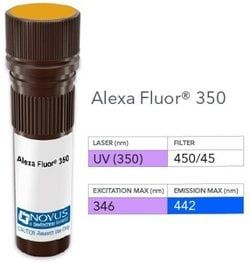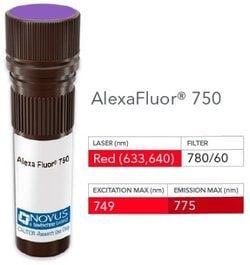Thyroglobulin Antibody (2H11 + 6E1), FITC, Novus Biologicals™
Manufacturer: Novus Biologicals
Select a Size
| Pack Size | SKU | Availability | Price |
|---|---|---|---|
| Each of 1 | NB006113-Each-of-1 | In Stock | ₹ 57,494.00 |
NB006113 - Each of 1
In Stock
Quantity
1
Base Price: ₹ 57,494.00
GST (18%): ₹ 10,348.92
Total Price: ₹ 67,842.92
Antigen
Thyroglobulin
Classification
Monoclonal
Conjugate
FITC
Formulation
PBS with 0.05% Sodium Azide
Gene Symbols
TG
Immunogen
Human thyroid follicular cells
Quantity
0.1 mL
Research Discipline
Cancer, Cell Biology
Test Specificity
Thyroglobulin is a 660kDa dimeric pre-protein with multiple glycosylation sites. It is produced by and processed within the thyroid gland to produce the hormone thyroxine and triiodothyronine. Prior to forming dimers, thyroglobulin monomers undergo conformational maturation in the endoplasmic reticulation. The vast majority of follicular carcinomas of the thyroid will give positive immunoreactivity for anti-thyroglobulin even though sometimes only focally. Poorly differentiated carcinomas of the thyroid are frequently anti-thyroglobulin negative. Adenocarcinomas of other-than-thyroid origin do not react with this antibody. This antibody is useful in identification of thyroid carcinoma of the papillary and follicular types. Presence of thyroglobulin in metastatic lesions establishes the thyroid origin of tumor. Anti-thyroglobulin, combined with anti-calcitonin, can identify medullary carcinomas of the thyroid. Furthermore, anti-thyroglobulin, combined with anti-TTF1, can be a reliable marker to differentiate between primary thyroid and lung neoplasms.
Content And Storage
Store at 4°C in the dark.
Applications
Flow Cytometry, Immunohistochemistry, Immunohistochemistry (Paraffin)
Clone
2H11 + 6E1
Dilution
Flow Cytometry, Immunohistochemistry, Immunohistochemistry-Paraffin
Gene Alias
AITD3TGN, TDH3, Tg, thyroglobulin
Host Species
Mouse
Purification Method
Protein A or G purified
Regulatory Status
RUO
Primary or Secondary
Primary
Target Species
Human, Mouse, Rat
Isotype
IgG1 κ
Related Products
Description
- Thyroglobulin Monoclonal specifically detects Thyroglobulin in Human, Mouse, Rat samples
- It is validated for Flow Cytometry, Immunohistochemistry, Immunohistochemistry-Paraffin.



